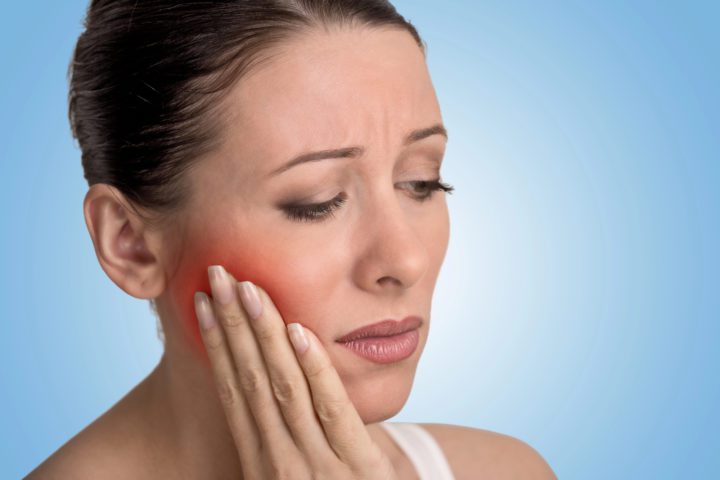How to Manage Pain and Promote Healing After a Root Canal
Managing the pain and promoting the healing process after a root canal is crucial for a successful recovery. While the procedure may cause discomfort, proper care and attention afterward can significantly affect your overall well-being. This article will provide practical tips on managing pain and promoting healing to ensure a smooth recovery. We hope you find this How to Manage Pain and Promote Healing After a Root Canal post valuable.

Image from Depositphotos
How to Manage Pain and Promote Healing After a Root Canal
Rest and Take It Easy
After a root canal, it's essential to rest and allow your body to heal. Avoid engaging in strenuous activities or exercises that could increase inflammation or aggravate the affected area. Give yourself time to recover by taking it easy for at least 24 hours following the procedure.
Manage Pain with Over-The-Counter Medications
It is not uncommon to experience some level of pain or discomfort after a root canal. Over-the-counter medications such as ibuprofen can be effective in managing pain. However, always consult with your dentist or oral surgeon before taking any medication to ensure it is appropriate for you.
Apply Cold Compresses
Applying cold compresses externally on your face near the treated area can help decrease swelling and alleviate pain after a root canal procedure. Wrap an ice pack or frozen peas in a thin towel and place it on the outside of your cheek for 15-20 minutes at a time, with breaks in between.
https://divinelifestyle.com/how-to-get-kids-to-brush-teeth/
Follow Proper Oral Hygiene Practices
Maintaining good oral hygiene is essential during your recovery period after a root canal. Brush gently twice daily using a soft-bristle toothbrush while avoiding vigorous brushing around the treated tooth or area. Rinse with warm salt water (one teaspoon of salt dissolved in eight ounces of warm water) several times daily to alleviate pain or soreness.
Avoid Hot or Cold Foods and Drinks
For a few days following your root canal procedure, try to avoid consuming extremely hot or cold foods and drinks, as they can irritate the treated tooth, leading to increased sensitivity or discomfort.
Stick to a Soft Food Diet
To protect the treated tooth and aid in healing, it is wise to stick to a soft food diet for the first few days after the root canal. Opt for foods that are easy to chew and do not require extensive biting or chewing.
Follow Your Dentist's Instructions for Medications
Your dentist may prescribe antibiotics or other medications following a root canal procedure. It's important to follow their instructions precisely and complete the entire course of antibiotics if prescribed.
How to Manage Pain and Promote Healing After a Root Canal
Report Any Persistent Pain or Problems
While some discomfort is expected immediately after a root canal, persistent pain or other issues should be reported to your dentist promptly. Follow-up appointments are crucial for your dentist to monitor your progress and address any concerns that may arise during your recovery.
Stay Hydrated
Remaining hydrated is essential for overall health and helps facilitate healing after a root canal procedure. Remember to drink plenty of water throughout the day.
Avoid Smoking and Irritating Substances
Smoking can slow down the healing process and increase the risk of complications following any dental procedure, including root canals. Additionally, avoid consuming irritants such as alcohol or highly acidic foods as they may interfere with healing.
https://divinelifestyle.com/10-uses-toothpaste-besides-brushing-teeth/
Use Pain-relieving Mouth rinses as Prescribed
In addition to managing pain with over-the-counter medications, your dentist may prescribe a pain-relieving mouth rinse to help alleviate discomfort after a root canal procedure. Follow the instructions provided by your dentist and use the mouth rinse as directed. This can provide targeted relief to the treated area and promote healing.
Avoid Extreme Pressure While Chewing
To prevent irritation or damage to the treated tooth and surrounding tissues, avoiding exerting extreme pressure while chewing during your recovery period is essential. Be mindful of what you eat and choose softer foods that require minimal force for chewing. Avoid crunchy or hard foods that could cause discomfort or disrupt healing.
Attend Follow-up Appointments
After a root canal, attending follow-up appointments with your dentist is crucial for monitoring your progress and ensuring proper healing. Your dentist will assess the treated area, remove any temporary fillings or crowns, and evaluate if further treatment is required. These appointments allow for timely intervention if any complications arise and ensure your recovery is on track.
How to Manage Pain and Promote Healing After a Root Canal
Undergoing a root canal procedure can be challenging, but with proper care and attention to your recovery, managing pain and promoting healing is achievable. By following the tips outlined in this article – resting and taking it easy, using over-the-counter medications as suggested by your dentist, applying cold compresses, practicing good oral hygiene, avoiding extreme temperatures of food and drinks, sticking to a soft food diet, and reporting any persistent pain or problems to your dentist – you can ensure a smoother healing process.
https://divinelifestyle.com/crest-sensi-stop-strips-help-sensitive-teeth-4-week-update-sensistopstrips/





